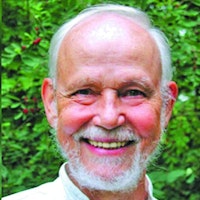The human opportunity, the religions tell us, is to transform our flashes of insight into abiding light.
The human opportunity, the religions tell us, is to transform our flashes of insight into abiding light.
Huston Smith

The Religions Tell Us
Topic: Interfaith Pathways
In mysteries what we know, and our realization of what we do not know, proceed together; the larger the island of knowledge, the larger the shoreline of wonder. Things are more integrated than they seem, they are better than they seem, and they are more mysterious than they seem; something like this emerges as the highest common denominator of the wisdom traditions’ reports. When we add this to the baseline they establish for ethical behavior and their account of the human virtues, one wonders if a wiser platform for life has been conceived. At the center of the religious life is a particular kind of joy, the prospect of a happy ending that blossoms from necessarily painful beginnings, the promise of human difficulties embraced and overcome. The human opportunity, the religions tell us, is to transform our flashes of insight into abiding light.
Huston Cummings Smith was an influential American scholar of comparative religions, best known for his accessible and insightful writings on the world's major religious traditions. Born on May 31, 1919, in Suzhou, China to missionary parents, Smith spent much of his early life in an environment deeply infused with religious and cultural exchanges. This formative experience undoubtedly laid the foundation for his later work in religious studies. Educated at Central Methodist University and the University of Chicago, Smith embarked on an academic journey that saw him teach at various reputable institutions, including Washington University, the Massachusetts Institute of Technology (MIT), Syracuse University, and the University of California, Berkeley.
Smith's most celebrated work, "The World's Religions," originally published in 1958 as "The Religions of Man," has been a staple in comparative religion courses for decades. The book presents a comprehensive overview of the world's major faith traditions, including Hinduism, Buddhism, Confucianism, Taoism, Islam, Judaism, and Christianity, elucidating their core tenets, practices, and histories. Smith's gift was his ability to distill complex religious concepts into engaging and approachable narratives, making them accessible to a broad audience. The book's success—evidenced by its sales of over three million copies—attests to its enduring appeal and Smith's prowess as a writer and educator.
Throughout his career, Huston Smith emphasized the importance of understanding and appreciating the diverse religious landscapes of the world. He believed that at the heart of every religion was a perennial philosophy—a set of universal truths—that could foster mutual respect and understanding among people of different faiths. Beyond his written work, Smith was an avid proponent of interfaith dialogue and was often sought as a speaker and commentator on religious issues. He passed away on December 30, 2016, but his legacy endures through his contributions to the field of religious studies and his tireless efforts to promote a more harmonious and interconnected world.
The World's Religions
Smith, Huston. The World's Religions. Harper San Francisco, 1991, pp. 388-389 [The World's Religions (Chapter X, The Wisdom Traditions)].

Huston Smith
Theme: Interfaith Dialogue

About This Passage From Huston Smith’s The World’s Religions [Commentary]
Huston Smith on the ‘Wisdom Traditions of Mankind.’
Additional Quotes From Huston Smith
Resources
Related Quotes
Copyright © 2017 – 2026 LuminaryQuotes.com About Us